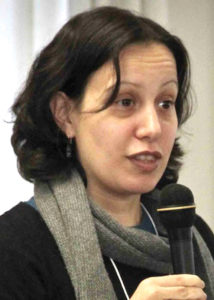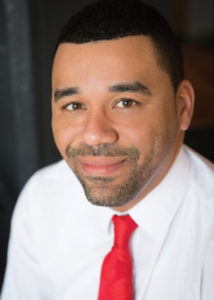Where Do We Go from Here? Solutions for the Environment

Presented February 4, 2021
Joelle Novey
Interfaith Power and Light (IPL) is working with hundreds of congregations of all backgrounds and traditions across the DC, Maryland, and northern Virginia region to find a moral response to climate change. We are one of about three dozen state affiliates of IPL doing similar work with congregations around the country. I’m grounded in the Jewish tradition and in our communities, if you want to really say that someone is a good person, you call them a mensch, which is Yiddish and German for “a person.” The highest compliment you can pay to someone is that a human being is a human being. That sounds like an easy project, but as humanists know, it’s not. The question of how to be a real human being, how to be a human being in these times and, specifically, how to be a human being in the face of the climate crisis is a profound and difficult question.
What does it look like to respond to climate change? One way to think about it is in three big categories: education, greening, and advocacy. Learn, go green, and speak out. The first one is opening conversations about climate change in communities, especially in communities where you are the most powerful messenger—the person people respect and want to hear from. I’m a passionate believer in the importance of opening climate conversations in people’s communities of meaning, whether that’s a humanist community, an ethical society, or a religious congregation. When we open conversations about climate change in those settings, we reframe the climate crisis as a moral issue, which it is.
And yet, for a variety of reasons, climate science has become politicized in the United States. Many people have come to take it as a matter of political identity whether they accept the basic science of climate change. When we can either explicitly or implicitly raise a conversation about climate change as a moral issue, it is so powerful and important because it reframes what has become a very stuck and politicized issue as simply a matter of being a fully-human human, which is what we should all be focused on.
Then, we talk about greening. How can we live a life that personally models for ourselves and the people around us a cleaner and greener way of living that’s not as dependent on fossil fuels? Bill McKibben, a climate activist I really love and admire, said, “[T]he most important thing an individual can do, is be a little less of an individual.” In other words, don’t be just one person—get connected to a community that is going to call you to action over and over again. If I were going to make one ask of everyone, it would be to join with others in some way so that you are part of building a movement, a true grassroots national and global movement, that is going to be able to meet the scale of this problem.
Now, on to advocacy. There are a lot of reasons to do advocacy for systemic change, and one reason is that it’s big enough to feel hopeful. If you’re part of a movement that’s going to change the laws at the state level or change the laws for our country, that’s starting to get to the scale that feels meaningful to the size of the problem. There are some great resources on americanhumanist.org and HEREforClimate.org for writing letters to the editor, getting involved in advocacy campaigns, and supporting stronger policy. I also suggest you find out whether there’s an IPL near you. Humanist communities would be welcome partners with their neighbors of many faith traditions in this work. Most of the IPL affiliates around the country are working on state level advocacy to try to change state policy on climate and clean energy.
I invite folks to learn and keep having those conversations about what’s happening to our climate and what it means to you and why it matters to you; to go green, and to speak out for system-wide change. We are, at the end of the day, all people who hope to be able to keep living on Earth.
Keith Kinch
 BlocPower is a climate tech startup based in Brooklyn that’s been around since 2012 and has completed over 1,000 urban green energy projects. Essentially, we work with building owners to do free energy analysis, think about the scope of their green energy project, find a contractor, and manage and even finance the project.
BlocPower is a climate tech startup based in Brooklyn that’s been around since 2012 and has completed over 1,000 urban green energy projects. Essentially, we work with building owners to do free energy analysis, think about the scope of their green energy project, find a contractor, and manage and even finance the project.
We’re in the midst of a climate crisis, a health crisis, an economic crisis, and still struggling with the racial crisis. There’s so much conversation now, and we get to reassess who we are, what we are, and what’s important to us moving forward with our loved ones and our community. I think you have to develop a plan of action. Once we have that, we begin to complete projects or make and build up successes.
Relationships are important to change. For example, I can say good things to you, but if you’re a building owner and another building owner who lives next to you, who shares your concerns and struggles, says the exact same thing I say to you, it’s more important to you coming from him or her. They can better convey the same thoughts because they share your values. It takes early adopters to step out and decide to try this and say, “I’m going to be the leader, I’m going to do it, and I’m going to go to my fellow homeowners and friends about this.” Then we can build.
We each are only one person, but there’s still a community aspect to us, and we all have influence on someone. Pick 10-15 people in your email list and say, “I want to talk to you about what we need to do to move forward,” or, “This is what I’ve done, I need you to do this with me,” and build it up from there. We need people who are ready to step out and talk to their loved ones and say, “Hey man, this is above us; this is about what’s best for the community and what’s best for our planet.”
Published in the Spring 2021 Humanist
